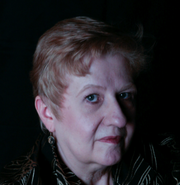Wednesday, May 28, 2014
Reading journalist Radley Balko's May 15 piece on Steven Hayne in The Washington Post reminded me, again, of our broken justice system.
If you're unfamiliar with Hayne, he's the doc who served as the Mississippi's de facto pathologist for some 20 years. By his own admission, Hayne performed 1,500 to 1,800 autopsies a year. Given his oft-discredited court testimony—several times during exonerations of death-row defendants—one would think Hayne might be behind bars instead of the people he testified against.
Balko outlines how Hayne's claims contributed to Christopher Brandon's 2009 conviction for depraved-heart murder. The jury heard only one controversial version of medical evidence in Brandon's trial for the death of his girlfriend's baby. During Hayne's testimony—that the child died of shaken baby syndrome—he cited a Harvard University study that no one has ever found, and gave opinions contrary to the findings of another study. In other words, Hayne, the state's star prosecution expert, seemed to just make sh*t up.
The court declined to provide funds the defense needed to put on dissenting medical experts—who can charge more than $550 an hour. They could have debunked Hayne on the spot. Hearing only the prosecution's experts, the jury returned a guilty verdict. Brandon is serving a life sentence.
Let me be clear: As in the case of Michelle Byrom, I don't know that Brandon is innocent. What seems clear from Balko's story, however, is that Brandon, like Byrom, did not receive a fair trial.
Our state Supreme Court upheld the Brandon conviction in 2013. He was not declared indigent, the justices reasoned, so he wasn't qualified to receive the court's assistance for expert witnesses. Furthermore, they wrote, the court "has consistently found that Dr. Hayne is qualified" as a medical expert.
That same year, the state Supreme Court overturned David Parvin's conviction for murdering his wife, Joyce, and again, Hayne's testimony played a key role. The doctor "fell woefully short of the requirements for admissibility" as a firearms expert, they wrote in the Parvin reversal. The same could be said for the court's reversal of Tyler Edmonds' conviction, where Hayne testified two hands pulled the trigger in the killing of police officer Ron W. Jones in 2001.
The court holds Hayne incompetent in one area but competent in another. In 2008, Mississippi's Department of Public Safety removed Hayne from its list of approved forensic pathologists after Hayne came to national attention. The Mississippi Innocence Project called him "a danger to the public." Hayne sued the project for defamation. The Innocence Project settled the case, but did not recant. The suit was perhaps a nuisance worth making go away—the project has more important work to do.
Beyond putting Hayne out of a lucrative state job, Mississippi has taken no actions to investigate how deeply his "work" might have injured the cause of justice. It has made no effort to find out how many of his thousands of court appearances could have resulted in unfair trials.
Clearly, it would be a big, expensive process. But is it not worthwhile when Hayne's testimony has been central in so many convictions? We don't know how many innocent people might rot in prison because of Hayne's possible propensity for fantasy or even whether the state has executed people as a result.
What we do know is that Mississippi will continue to see the evidence of Hayne's handiwork for years to come. We do know that the Mississippi Supreme Court has dismissed claims of unfair trials because they hold he was "qualified" to provide expert forensic testimony. Attorney General Jim Hood has a duty to ensure that the state's justice system works. He has a personal stake in not wakening the Hayne sleeping dog. As a prosecutor, he often relied on Hayne. Whether he understood that Hayne was a questionable expert then, he must understand it now.
Yet, Hood fought against legislation mandating that counties only hire certified forensic pathologists—which further disqualifies Hayne. Investigating the Hayne cases is not convenient, politically or otherwise. Hood may not want to appear to be defending Hayne, but his inaction speaks volumes.
It's time to end the travesty Hayne perpetrated on the people of Mississippi. It's unacceptable, and we deserve better.
Ronni Mott is a freelance journalist in Jackson. Many credit her breaking stories on the Michelle Byrom recently for helping stop her execution.
